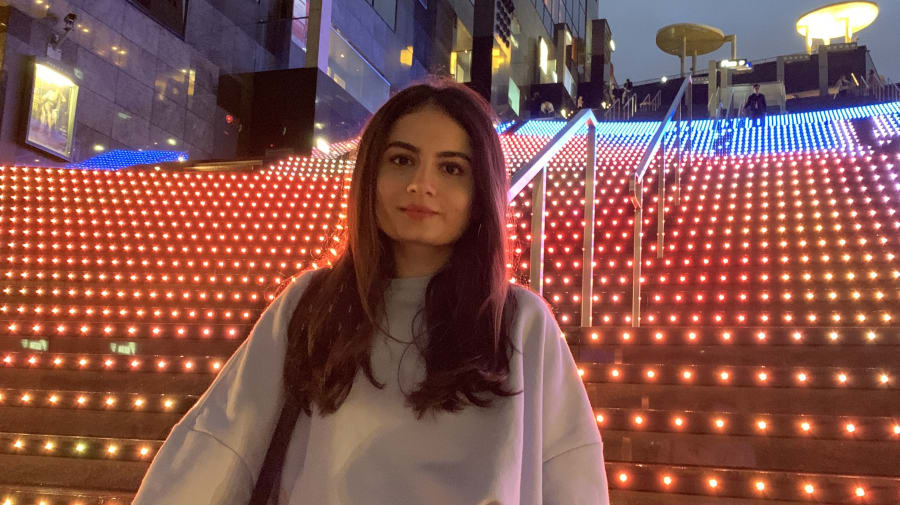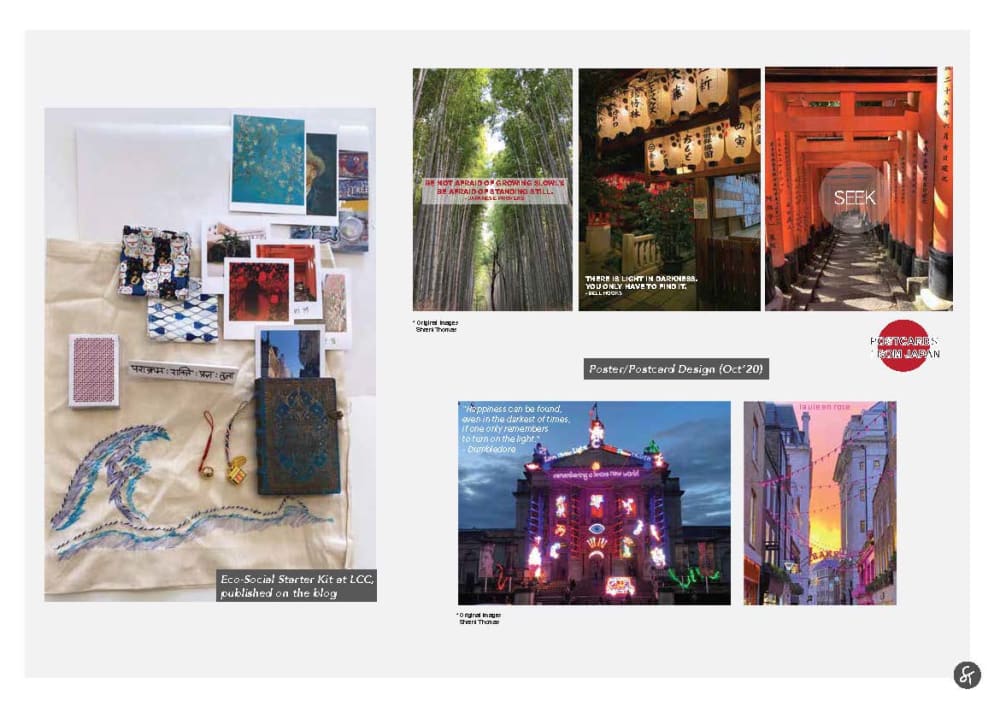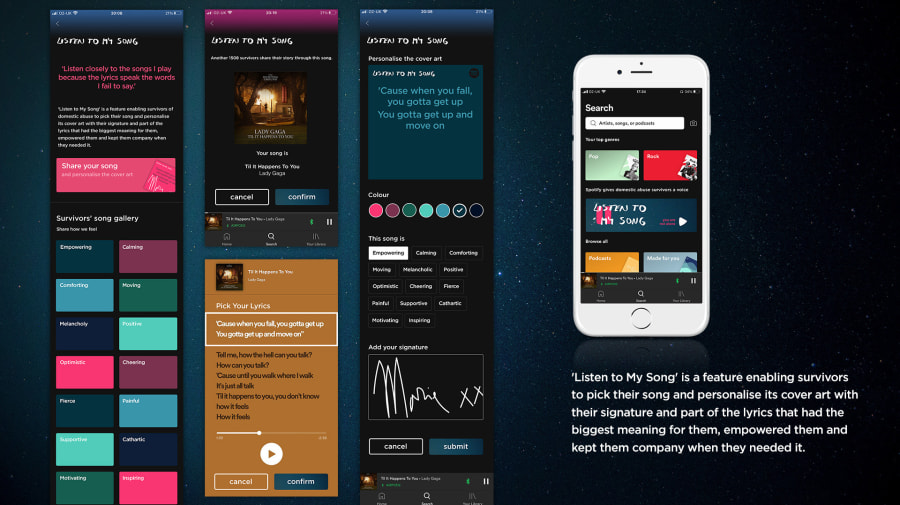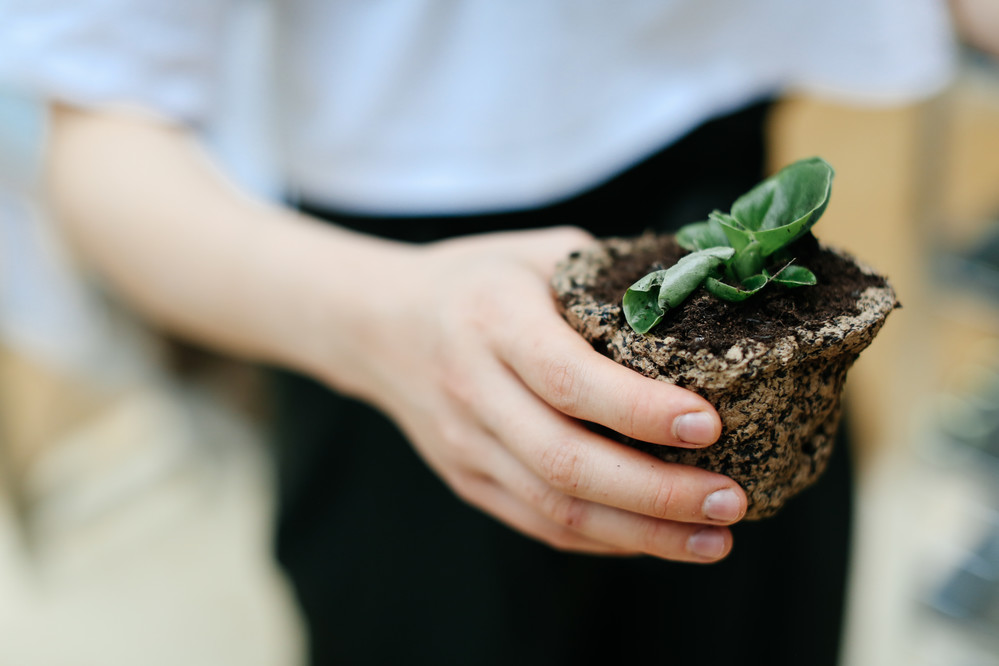After studying Knitwear Design in India and working in the fashion industry, Shreni realised she wanted to change course and follow her passion to a career in social impact. Moving to London, she joined MA Design for Social Innovation and Sustainable Futures at LCC. We speak to her about her experience on the course, the differences between studying in India and in the UK, and her advice for other students in India thinking of applying to UAL.
Find out more about studying at UAL as an Indian student.

Why did you want to study in London and at UAL specifically?
London is known for its cultural diversity and global educational standards along with its thriving creative industry. This made it my first choice as I was looking at broadening my work and branching out in the creative space. A lot of the creative studios and practices I am interested in are located in London too.
UAL has always been my dream university as a design student. When I was researching courses in sustainability, this one caught my eye in particular as it is quite specific and there’s also room for experiment.
UAL has a great alumni and industry network which I found very inspiring. In fact, some of my friends have studied at UAL and had a great experience, which added to my inclination.
And why MA Design for Social Innovation and Sustainable Futures?
I was really interested in sustainability and ethical practices. I found a gap in what I was doing and what I wanted to do. So I started looking for a course that would let me explore different facets of sustainability and wouldn’t be limited to just fashion. I realised that I could use design as a tool to make change and create impact. This course helps analyse and address a lot of social issues which I found really interesting
Can you tell us a bit about what the course entails? What has been your favourite part so far?
The course is very hands-on and pushes you to think critically. It involves a lot of design research which helps you to get to the core of the issue.
My favourite part has to be collaborating with other creatives from different backgrounds and experiences. This allows me to see things from different perspectives and think broader. This course has also enabled me to develop essential transferable skills like design research, impact evaluation, participatory design and critical analysis.
What did you study for your undergraduate degree? How has this background inspired your work at UAL?
I did my undergraduate degree in Knitwear Design at the National Institute of Fashion Technology, Bangalore, which was a 4-year course. I also worked with the fashion brand C&A for a couple of years before pursuing my MA.
I’ve worked on a couple of fashion-based projects within my master’s curriculum at UAL. My background in fashion has really helped with the basics and in building context for the projects.
After studying in India, what are the main differences you’ve noticed studying in the UK?
I think the main difference is the importance given to self-study and reflection. We spend quite a lot of hours a week on self-learning and research before we have sessions with our tutors and peers. I think there is more emphasis on practical-based learning in the UK. Also, the resources available at the university are more accessible, updated and relevant. The assessment feedback is quite different too, it's more constructive and reflective.

Can you tell us a bit about your application process?
I applied through UAL's official representatives in Bangalore.
I would highly recommend applying through them - it makes the entire process a lot smoother. My counsellor helped me to understand what was expected in the application process, like the format and content requirements for the study proposal and portfolio. They also helped me find the most suitable course that matched my interests and inclination.
After I'd shortlisted the courses I wanted to apply to, I started my application by prepping for the entry requirements. Next was to get my application documents, transcripts and portfolio ready. I had an in-person interview with an academic coordinator in Bangalore. After I was offered a place, I had my English language test and got the required health checkup done. I also attended a number of webinars held by the UAL team for information on the visa process, travel regulations and accommodation which were really helpful.
The study proposal is an important part of the application for graduate study. Has your proposal evolved during your course so far? If so, how?
My study proposal has evolved quite a lot. I come from a fashion background, both academically and professionally. When I was applying for this course, my outlook was limited majorly towards sustainable fashion. But during the course, I have had the opportunity to work on a variety of subjects that have developed and diversified my interests.
Do you have any tips for prospective students on putting together their study proposal?
I think the study proposal is really important as it gives the course team an idea of the direction you want to pursue. It is essential that the study proposal demonstrates the attributes of the course and is relevant. It would be a good idea to make sure that it is clear, coherent, well structured and accurately referenced.
Do you have any other advice for students in India considering studying at UAL?
I think research is the most important part of the application. UAL has a wide number of specific courses and it would be a good idea to shortlist the ones that interest you. One of the most useful pieces of advice I was given while applying for UAL is to document the design process. The education system in India and UK are quite different, so it would be a good idea to be familiarised with the course units and expectations before starting. Also, reach out to the course team for additional resources.

Due to the current pandemic, you’ve experienced a different way of online learning. How did you find the move to purely online learning after the new government regulations came in?
Honestly, it was quite challenging to move to purely online learning at first as we had the blended learning model when we started. But our course tutors were extremely supportive throughout the term. We used a lot of online tools like Miro and Padlet to collaborate on group projects which were quite useful.
What projects have you been able to work on in the workshops at LCC? Have you managed to get back on campus this term?
I've been able to do a couple of printmaking workshops at LCC. I particularly enjoyed the relief printmaking workshop. We moved back to the blended learning model this term and have one tutorial on campus per week. We can also make bookings for study spaces, the library and workshops for any day of the week. It’s been wonderful to be back on campus for in-person tutorials and use the resources.
Have you had any work experience or taken on any jobs alongside your studies at UAL?
I started working as a UAL student ambassador in November last year which has been a wonderful experience. Apart from this, I’ve also worked on several short term assignments on ArtsTemps like micro-teaching sessions and short course user testing. I’ve also worked on a couple of external temporary creative jobs on portals like Run The Check. Personally, I prefer shorter-term assignments rather than fixed part-time jobs as I can plan my course schedule more manageably.
What are your career aspirations once you graduate?
I want to get into the social and responsible design space. As I come from a different background, I would like to start with an internship. We have an Industry Mentorship programme where we are assigned a mentor and this has been quite helpful. I also plan on getting in touch with the Careers and Employability Services at UAL for more guidance and opportunities.

